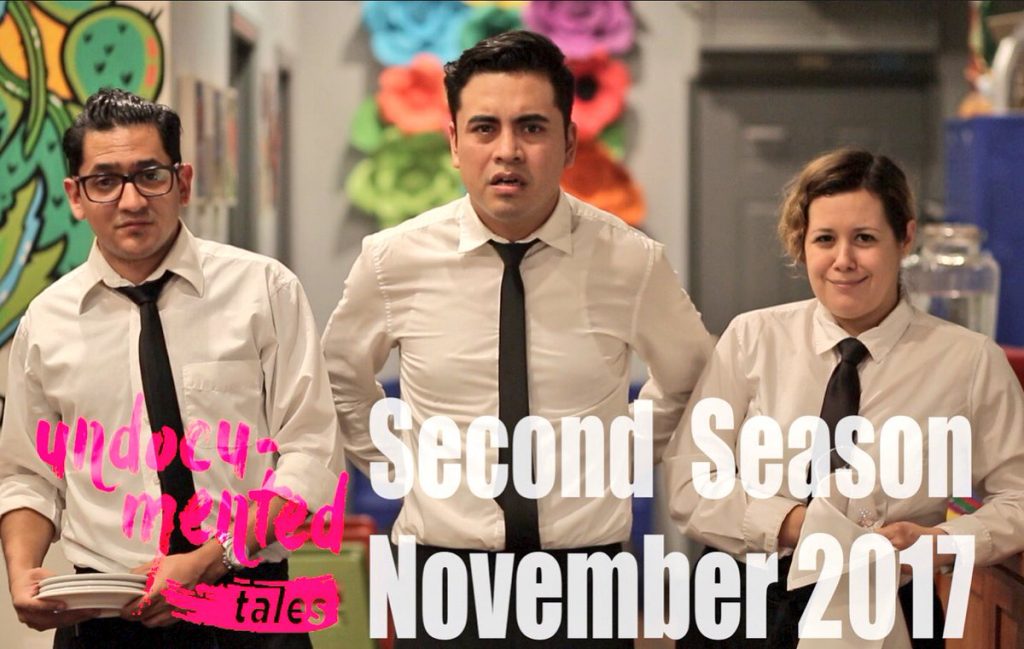Armando Ibañez has taken storytelling to a whole other level with his web series, Undocumented Tales which he began in September of 2015. For him, being in charge of how the stories of queer immigrants are told is not something he takes lightly. Ibañez shares with us that the project was created for those who might be feeling a little down as [he] felt years ago. He wants to tell people that no matter the barriers we have, we are powerful.
In our communities we need `{`...`}` healing and I feel writing is a form of healing for me
Armando Ibañez
For visionaries like Ibanez, his work is about putting those that are not represented onto the screen. He hopes to bring comfort to those that are struggling to find their place in the world while being queer, undocumented and working class. What began as a project inspired by his love for filmmaking has become a source of inspiration to many. The cast is composed of mostly immigrant queer and trans Latinx people which is a priority to Ibanez and through the power of the internet and with the love of many, Undocumented Tales has gathered significant success.
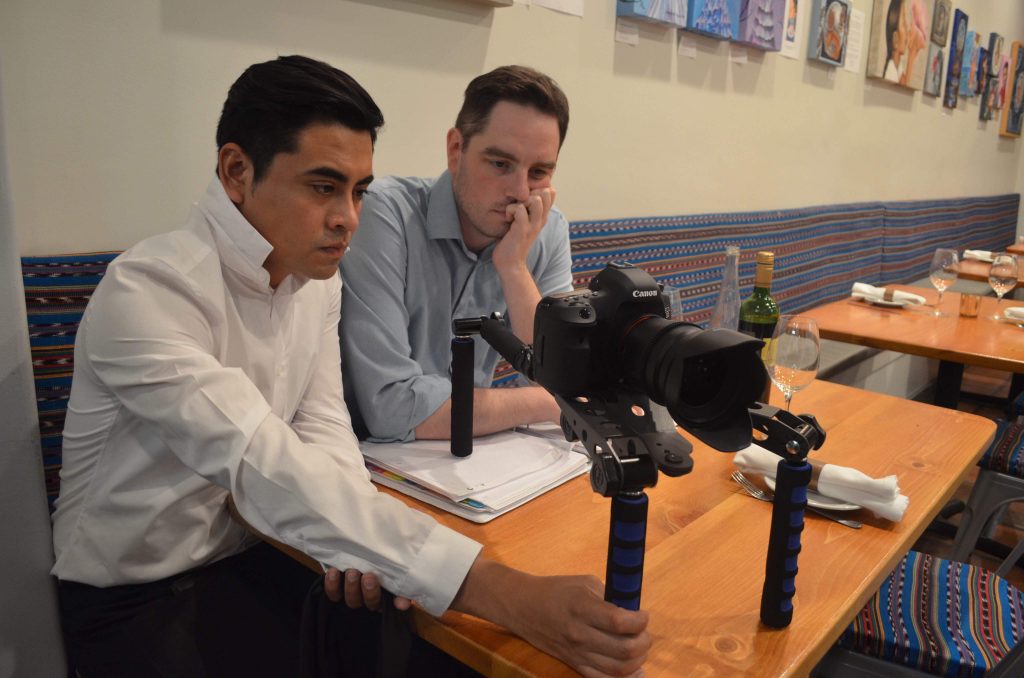
Ibanez recognizes this success when he tells us, “people send messages from other states telling us how important the show is to them […] they feel connected with the issues presented in the episodes.”
The series follows the life of Fernando, a gay and undocumented server living in Los Angeles. In the series, Ibanez takes us through the hardships that Fernando faces in his day-to-day life, the limitations he deals with because of his immigration status and also the realities of dating and friendships.The lead character, played by Ibanez himself, experiences shame and rejection but also joy and love. We get to see the complexities of the lives of undocumented queer people outside of the repetitive and tragedy-based stories the media likes to focus on. Every episode puts us in our feels!
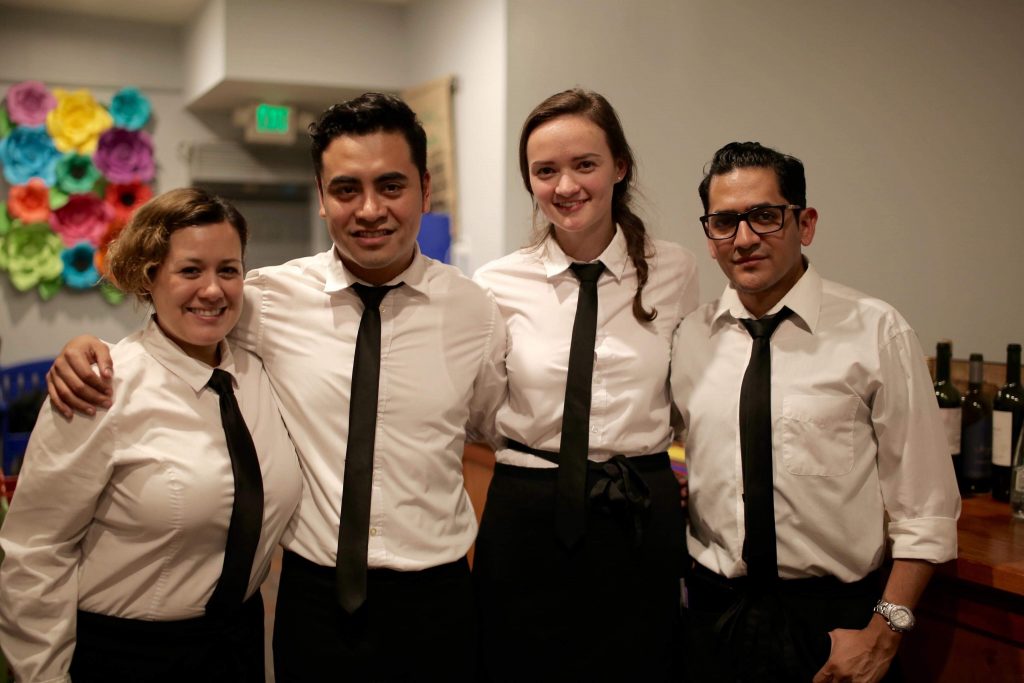
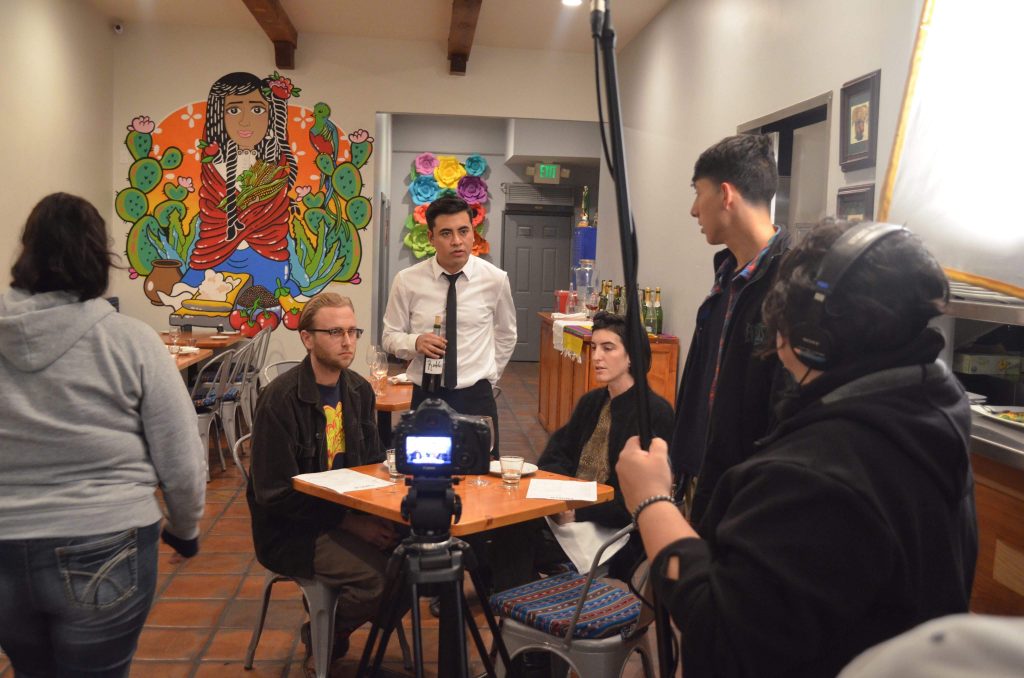
At a time in which the narratives of marginalized people are being shaped and told by a mostly white-led world of filmmaking, artists like Armando Ibanez remind us to always be in charge of our voices. No one can tell our stories like we can.
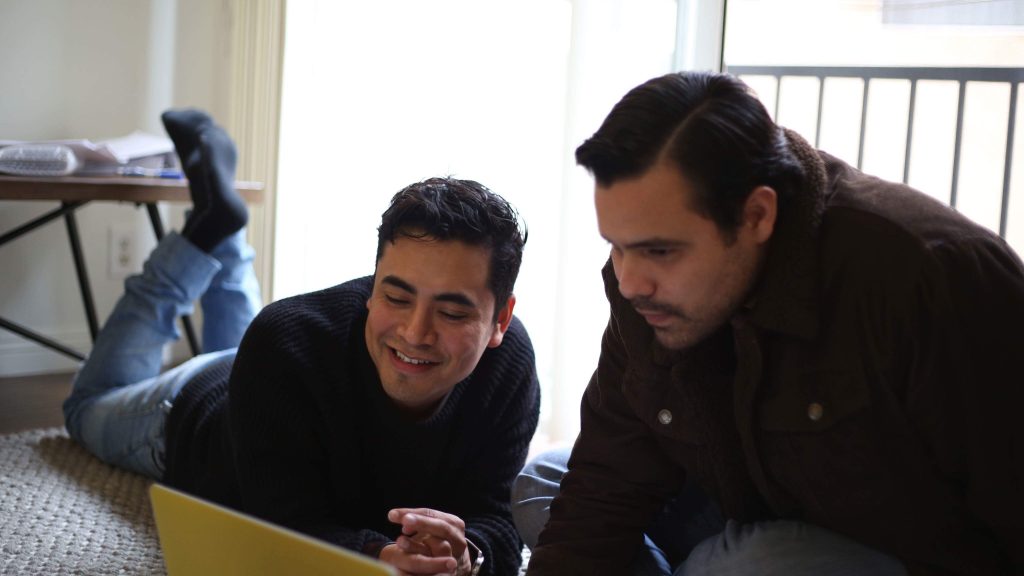
We interviewed Armando Ibañez to hear first hand about what inspires him, what his life has been like and what he hopes for the future — enjoy!
DAVID CARBAJAL TORRES: Where is your family from? What was life like there?
Ibanez: We are from Acapulco, Guerrero. Mexico. I was born in Ensenada, Mexico but our family moved to Acapulco months after I was born. When I was for 4 years old my parents divorced and I stayed living with my mother. My single mother had to work all the time. We lived in a very poor part of Acapulco. The Acapulco that people don’t see in magazines, tourism brochures or TV. The part where all the hard working class people live. One of the most beautiful memories I have from my childhood is always playing on the streets shirtless, wearing shorts and running with other boys without shoes. My mother married again when I was about 10 years old. My brother and sister were eventually born.
DCT: Why did your family migrate to the United States? How old were you and what was your experience like?
Ibanez: We always struggled financially because we could barely afford food. Around the 90’s we always saw neighbors migrating “pa’l norte” here and there we always heard of a new person from the block crossing over to the states. My stepfather borrowed money so he could pay to “el coyote”, the person who helps people crossing the desert to the US. He crossed in 1998. He then saved money to bring my mother and my siblings the next year in 1999. I stayed in Acapulco living with relatives and eventually came to the US in december 2000. I was 18 years old when I came to this country.
DCT: How old were you when you came out, what was it like? How did your family respond?
Ibanez: I lived very confused all of my life in Mexico. I grew up with a very machista conservative Catholic family; an environment where your uncles and cousins make fun of you if you cry or do “womanly things”. I never really accepted or considered exploring my feelings or identity. Once I came to the US I started dealing with my undocumented identity. I was an adult and I lived hiding and lying about my feelings all the time, at home and to society. You can lie to people about who you are but you can’t lie to yourself. Living like that was a nightmare all the time. I had depression and anxiety most of the time. Around 2012 after being tired of living in the shadows I got involved in the undocumented immigrant rights movement.
That was the first time I came out as undocumented. I started getting involved in protests and rallies and making new friends. I soon realized that these friends most of them were gay, queer and trans people. People who were living in two closets and could understand my struggles. I wanted to be like them. I wanted to be unashamed, unafraid and unapologetic. Two years after, in 2014 I told my mom I was gay and her response was very painful. She quoted the bible. She talked about how people living in a town were punished for being gay. I believe she was talking about “Sodoma y Gomorra”. She told me she loved me because I was her son but she couldn’t accept me as a gay man. I feel my coming out experience was very different from everyone else’s because at that time, I was surrounded by amazing undocumented queer activist friends who were there to support me. After I came out, I went to a friend’s house and all of my friends were there. I cried all night and they listened to me and gave me all their support. I am blessed in that sense. Many people have a lot more difficult things to deal with from their parents. People are disowned, abused, attacked, ashamed. I was supported by my friends and I think that’s a beautiful memory I could never forget. The acceptance from my mother has been a process. But I think she is in a place where she is learning how to love not only me, but to love everyone else. Our parents come from a different generation and we can’t blame them. I blame society for creating all these norms.
DCT: What attracted you to become a filmmaker?
Ibanez: I grew up watching old Mexican movies with Pedro Infante and Maria Felix. Once I became a teenager I started watching films like Casablanca and Gone With the Wind. I always loved films. I never considered becoming a filmmaker because for the working class that’s a luxury. That’s a goal only rich or white people can accomplish. Even though I had a fantasy about making films, I never spoke about it because I felt embarrassed and thought people would laugh at me.
DCT: How did you get started?
Ibanez: Once I was in the US. I remember family and friends telling me, “the only thing you’re gonna do in this country is work all the time so forget about goals or dreams. Don’t get in trouble and don’t tell anyone you’re undocumented,” and so I did. I gave up all of my dreams. After living in the US for more than 10 years as undocumented, I heard in the news of the ‘Dreamers,’ undocumented youth protesting on the streets. Never in my life did I imagine I was gonna see that. “I wanna meet them. I wanna be friends with them. I’m undocumented too,” I thought. Like I said before, I got involved in the movement and realized they were making changes to their lives. They fought for DACA. I also learned many of them had gone to school, and that totally changed my life. I started thinking “what If I can go to college like them?”. After I spent many years feeling sad because I couldn’t go to school like everyone else I finally had the chance to enroll in community college. Today I take only 2 classes to graduate with a Film and a TV production degree.
DCT: Who inspires you? What filmmakers? Artists?
Ibanez: I remember when I was a kid, I wanted to be like Steven Spielberg. In some ways the artist that inspire me have been changing as I am getting older. During my early 20’s I started loving Pedro Almodovar. I love his writing. There is always complex characters in his movies. And I love the that he always writes about women and their resilience. Now a days, the artists that I connect with and that I feel they have been my mentors (without them knowing) are artists that I feel close to my heart. Artists that bring positive change to our people. Ava Duvernay, Viola Davis, Aurora Guerrero, Issa Rae are some of the people that are helping me to find my own voice in filmmaking.
DCT: How did Undocumented Tales come about?
Ibanez: Once already in college, I was going through a lot of depression for being undocumented and queer. I started having suicidal thoughts. One day at school I had a panic attack and after that, I decided to look for professional help. Around the same time that I was getting therapy, I remember one of my friends mentioning the youtube series Awkward Black Girl, a show about a girl (Issa Rae) telling her story as a black girl who is awkward living in LA. I watched the show and that completely inspired me to do my own series. I began writing my experiences as an undocuqueer living in LA. In our communities we need a lot of healing and I feel writing is a form of healing for me. I pitched the project to friends and family and that’s how Undocumented Tales was born. A web series about the life of an undocumented queer server living in Los Angeles.
DCT: Where do you hope to take this project?
Ibanez: I created this project for many reasons and for different audiences. At first, I wanted to educate a general audience about our experiences. I also created this for our parents, the Latino community. There is a lot of homophobia in our circles and this is a way to inform our people about our lives, especially to those parents that are having a hard time trying to accept and love their children because of their sexual identities. But mainly, the project is created for those people who might be feeling a little down as I felt years ago. I want to tell them that no matter all the barriers we have, we are powerful. I want to tell them to not give up. To resist. To hang in there. With this project I just want to remind my people how beautiful we are.
DCT: What has the response been like?
Ibanez: Since we premiered season one, the response has been amazing. I think representation is very important because when our undocumented people see themselves on the screen, we are telling them their lives matter. People send messages from other states telling us how important the show is for them, they feel connected with the issues presented in the episodes. Because even though the story does not represent all undocumented queer people, it shows many of the issues we all deal with and that’s what makes the audience feel connected. I think also, what makes this project different is that this is the first time we see undocumented people laughing, dancing, falling in love. We not only see the struggles but we also see a lot of the joy. Because that’s who we are. We are humans and mainstream media never shows us that.
DCT: How much of Undocumented Tales is based on your life?
Ibanez: I’d say about 70%. Many of the experiences in the show have been lived by me, some of them are issues I have witnessed or heard of from family and friends. The issues in the undocumented LGBTQ community are very broad and complex and that’s why I am also creating new characters to let the audience know that one story, my story, does not represent everyone.
DCT: What advice do you have for young queer and immigrant artists?
Ibanez: I write because I feel I have the power to create change. I write the about the things I’d like to see on the screen. Writing and putting those words on the screen makes me feel alive. I’d like to tell young artists to believe in themselves. Allow yourself to be completely vulnerable. No matter what type of art is, music, painting, writing, don’t be scared to share your feelings with the world. Art can be a form of therapy for us. Art can be a form of healing for others. Believe in yourself.
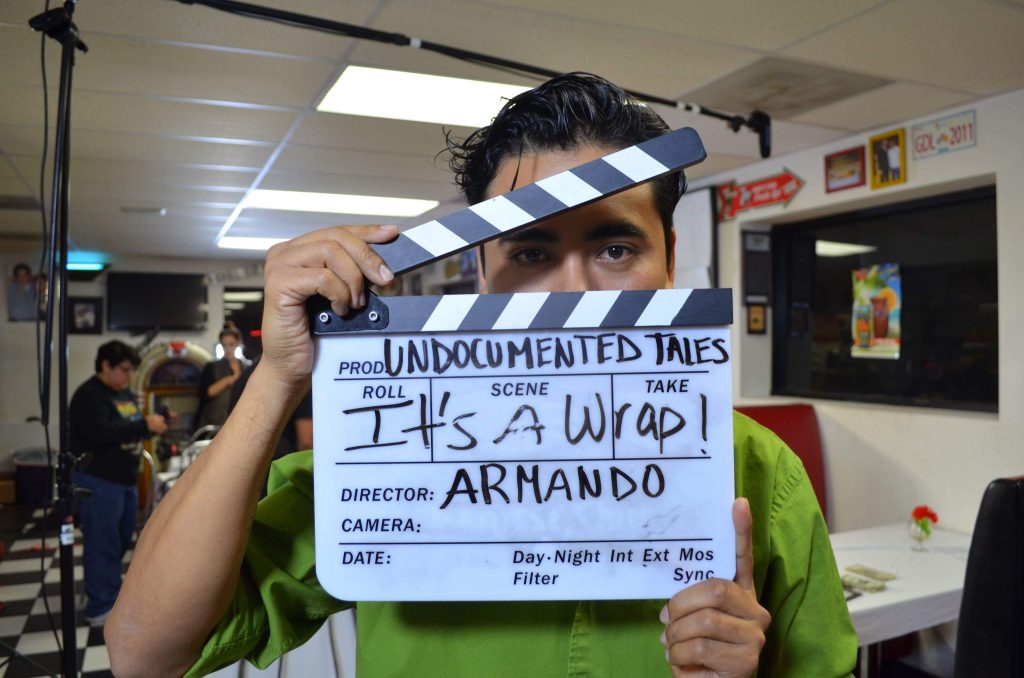
Undocumented Tales will grace Orange County with a screening on Sunday, January 14th at the LGBT Center on 4th located at 305 E. 4th Street in the city of Santa Ana, the event will begin at 4:00 p.m.
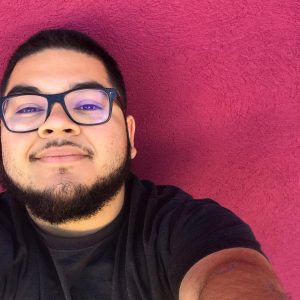
David Carbajal Torres
is a public health worker and community organizer interested in gentrification and queer and trans issues. David has written for we are mitú and has contributed to several other blogs like The Gran Varones which uplifts the stories of queer, gay, bisexual and trans Latinx men. He resides in Santa Ana.
Follow David

